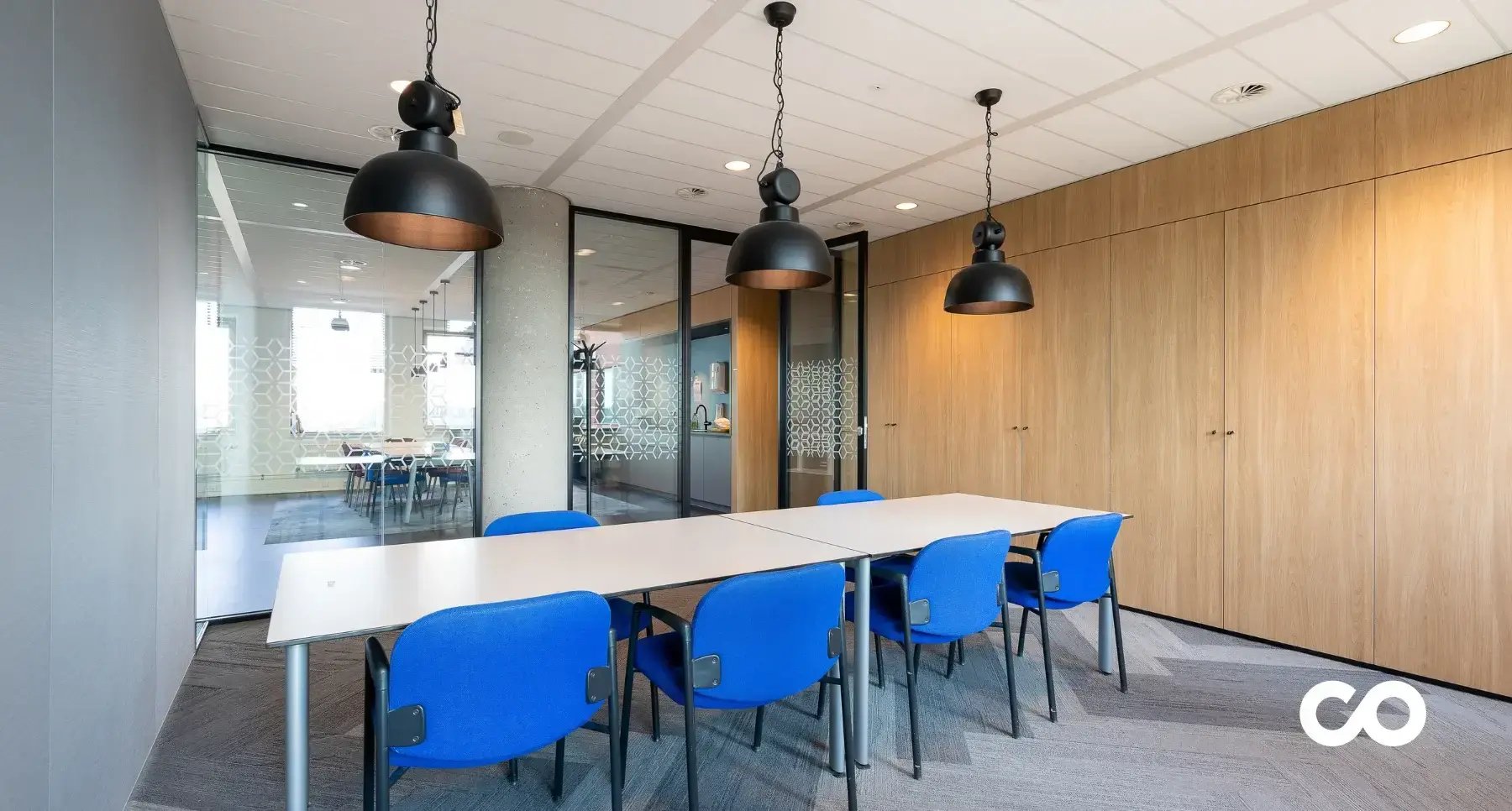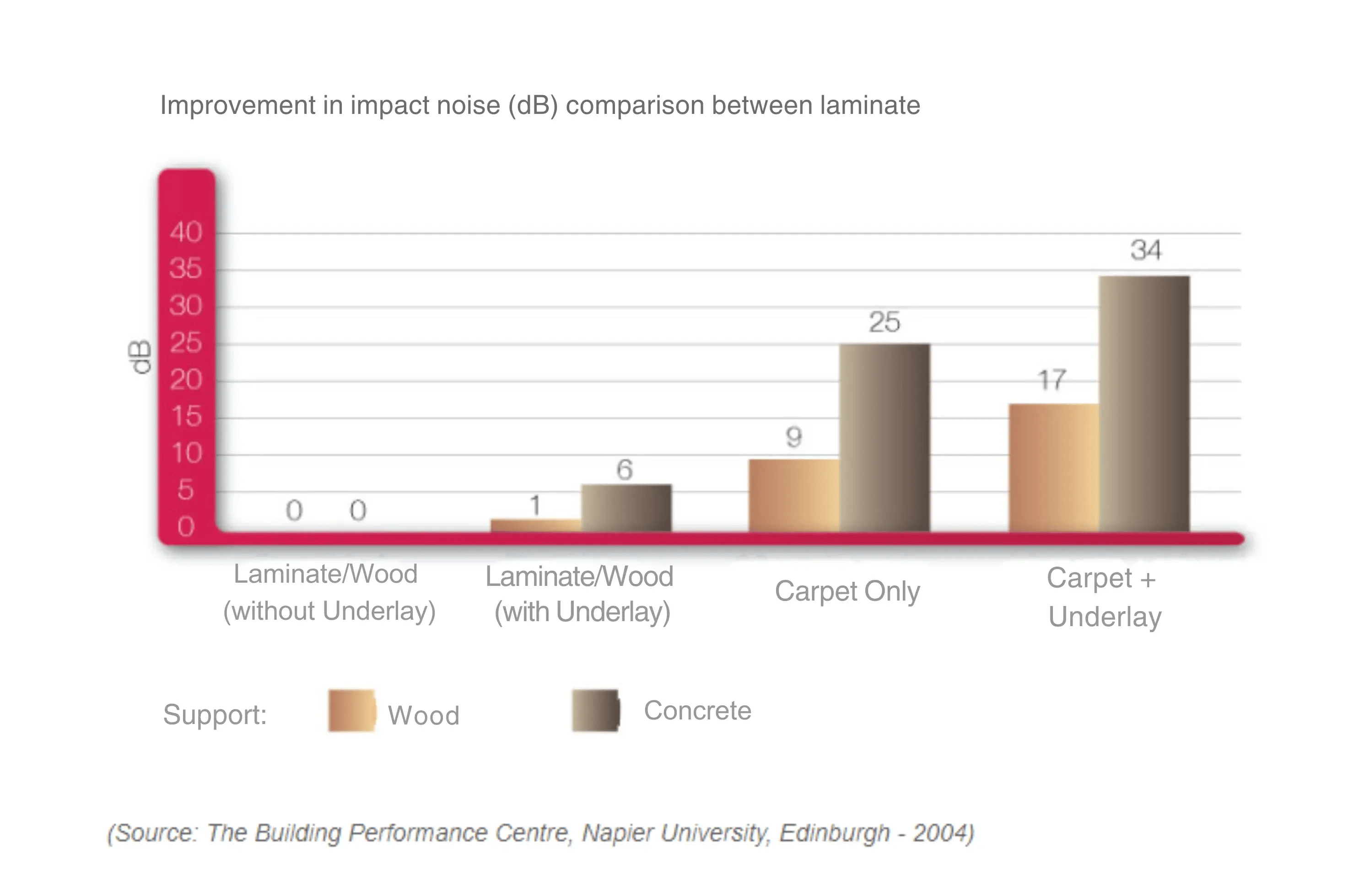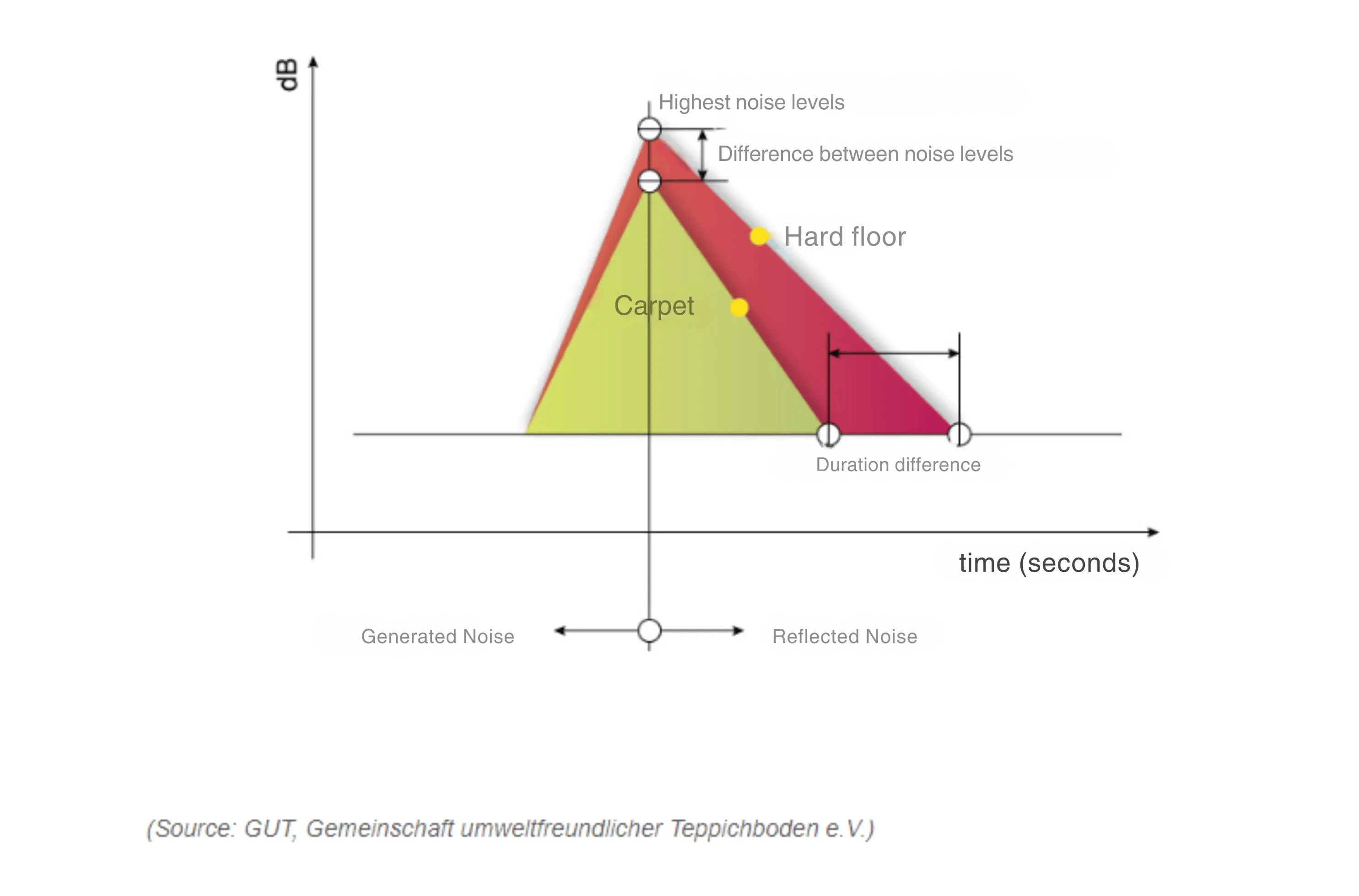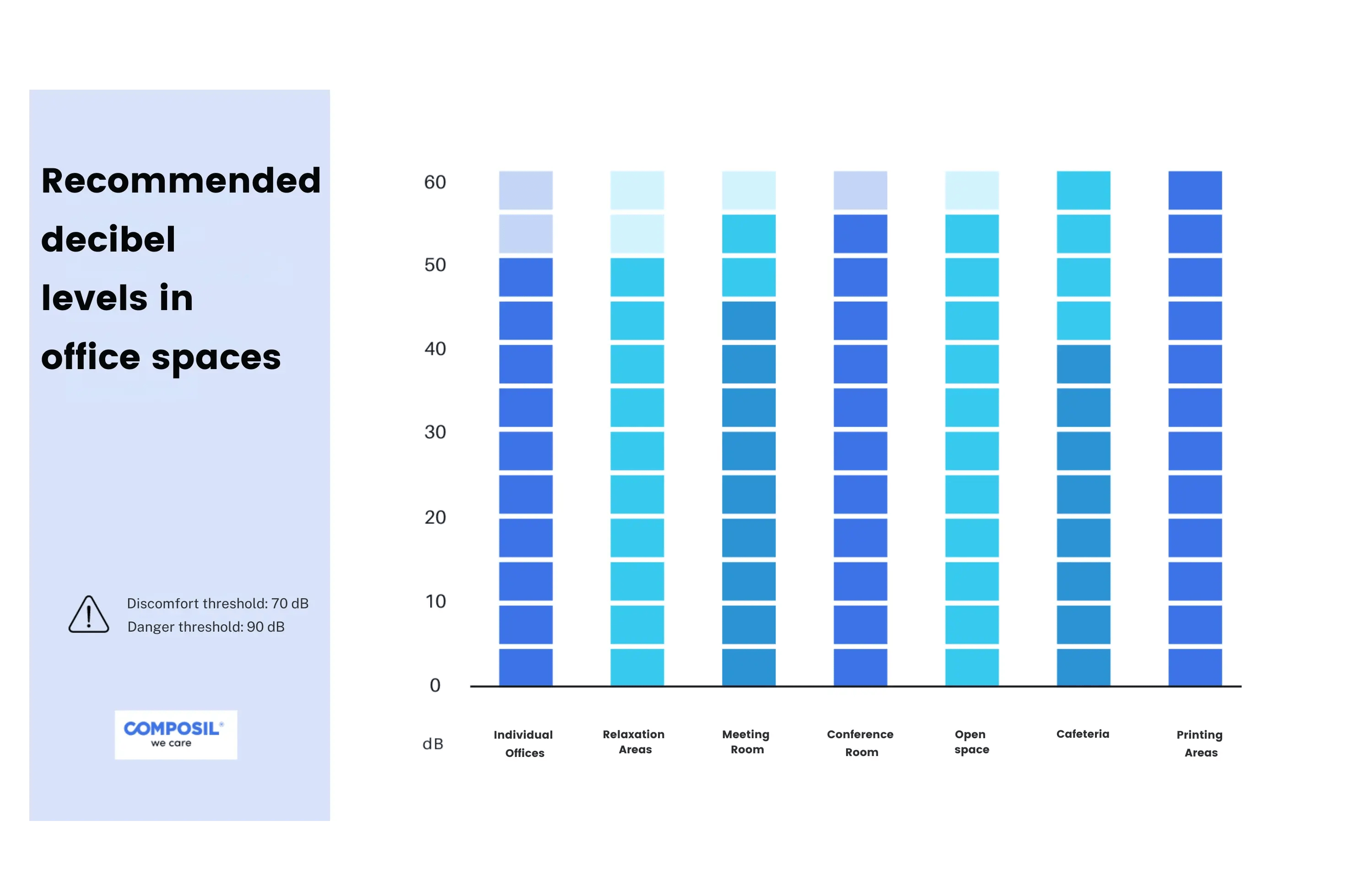Soundproof carpet: why is it suitable for workspaces?
Author: Léo M.
Jul 25, 2024 5:31:59 PM
Soundproof carpet is designed to reduce noise in professional environments, enhancing employee well-being by promoting concentration. It meets strict standards, providing quieter and more comfortable workspaces.
Additionally, studies show that it significantly lowers decibel levels compared to hard floors, making it an ideal option for better acoustics.
Discover how these solutions can transform your professional environment.

At the heart of every professional environment lies a crucial yet often overlooked element: acoustics. The way sound travels within a space can significantly impact employee well-being (headaches, etc.) and overall productivity (concentration). This is where soundproof carpet comes into play.
Discover how soundproof carpets can transform your workplace into a haven of tranquility and efficiency, and explore comparative studies on noise levels with us. You’ll be surprised by their beneficial effects.
What is a Soundproof Carpet?
Definition of Soundproof Carpets
Soundproof carpets are floor coverings specially designed to reduce noise levels in a given space. They are generally composed of multiple layers of absorbent materials, which work together to dampen sound vibrations and limit noise propagation. These carpets provide additional sound insulation, creating a quieter and more comfortable environment for workers.
Composition of Soundproof Flooring
- Support Layer: Often made of latex or polypropylene, providing stability and durability
- Acoustic Insulation Layer: Made from wool, acoustic foam, or synthetic fibers, this layer is crucial for sound absorption.
- Surface Layer: Composed of synthetic fibers like nylon or polyester, this layer determines the carpet's aesthetic appearance.
How Does It Reduce Noise?
Soundproof carpet absorbs sound waves and converts them into heat, reducing reverberation and unwanted noise. It acts as an effective barrier against sound interference, creating a quieter and more serene working environment.
Advantages of Soundproof Carpet
The advantages of soundproofing for businesses
1. Improvement of Employee Well-Being: Reducing noise creates a quieter work environment, which can enhance employees' mental health and job satisfaction.2. Increased Productivity: By minimizing auditory distractions, employees can focus more effectively on their tasks, leading to higher productivity and improved results.
3. Compliance with Health and Safety Standards: In many industries, adhering to health and safety regulations is crucial. Acoustic treatments help businesses meet these requirements by lowering noise levels and creating safer work environments.
Comfort and Aesthetics: Additional Benefits of Carpets
- Comfort: Soundproof carpets provide a soft, cushioning surface that reduces fatigue from standing for long periods.
Aesthetics: This type of flooring comes in a wide variety of styles and colors, adding a visual appeal to the work environment and creating a welcoming atmosphere.
Practical Uses in Business
Productive Environment
- Open Workspaces: Open-plan offices are conducive to a lot of movement, phone calls, and spontaneous discussions among occupants, which can sometimes make it difficult to concentrate. Soundproof flooring, such as carpets, is ideal for open offices, as it helps reduce ambient noise and minimize distractions.
Conference Rooms: Carpets enhance the sound quality of meetings by reducing echoes and absorbing background noise.
Employee Well-Being
- Break and Relaxation Areas: Soundproof carpets create a quiet space for rest and relaxation, helping to reduce employee fatigue.
- Private Offices: By providing better acoustic insulation, soundproof carpets enhance privacy and comfort in individual workspaces.
Also read:
> Why Install Carpet in Your Offices?
Belgian and French Regulations on Workplace Acoustics
In Belgium, as elsewhere in Europe, noise disturbances at work are subject to strict regulations designed to protect employees' health and well-being. These standards aim to ensure optimal working conditions by minimizing the adverse effects of noise on workers' health and concentration.
In France, the Qualitel label is awarded when the impact noise level is below 52 decibels. This certification ensures that the premises meet the necessary acoustic standards to create a calm and productive work environment.
Study of Noise Disturbances: Comparison Between Carpet and Hard Floors
Comparison of Decibel Levels Between Carpet and Hard Floors

A carpet alone and a carpet with an underlay both provide better acoustic insulation compared to hard floors like wood, laminate, and concrete. The carpet with an underlay effectively absorbs vibrations and footstep noises, creating a quieter indoor environment. Similarly, a carpet alone is highly effective at reducing impact noise, making it a practical solution for improving a room's acoustics.
Soundproof carpet is your best ally against noise!
Difference in Noise Levels Between Hard Flooring and Carpet

What is meant by noise?
According to AFNOR (French Association for Standardization), "noise" refers to any sound that is unpleasant or disruptive, as well as any sonic phenomenon that causes it. Noise is often unpredictable and lacks distinct components.
Regarding sound measurement:
-
Noise level is quantified in decibels (dB).
-
The initial threshold of human auditory perception is set at 0 dB.
-
Sounds become bothersome when their intensity exceeds 75 to 80 dB.
-
The World Health Organization (WHO) establishes the acoustic risk threshold between 85 and 90 dB.
At 110 dB and above, sounds become intolerable and can lead to rapid hearing damage.
Acoustic References for Office Spaces
To maintain an optimal work environment, noise levels should remain below 55 dB to avoid distractions and maintain auditory comfort. Ideally, open office spaces should aim for levels between 50 and 60 dB, while enclosed areas should stay below 50 dB. Excessive noise can reduce concentration and increase employee stress, thereby affecting productivity and well-being.

CONCLUSION
In a professional environment, optimizing the workspace is essential for enhancing productivity and employee well-being. Among the solutions, soundproof carpet plays a crucial role in improving the acoustics of the premises. It combines attractive aesthetics with effective noise reduction, thereby creating a more peaceful and comfortable working environment.
5 Key Points to Remember:
- Definition and Composition: Soundproof carpets use absorbent materials such as wool or acoustic foam to attenuate noise and reduce echoes.
- Advantages for Businesses: They enhance employee well-being by promoting concentration and increasing productivity.
- Practical Use in Business: Ideal for open spaces, conference rooms, and relaxation areas.
- Regulations: In Belgium, businesses must adhere to strict noise regulations, considering decibel levels to protect workers' hearing health.
- Comparative Study with Hard Floors: The study shows that soundproof carpets significantly reduce decibel levels compared to hard floors, making them a favorable choice for improving workplace acoustics.
Need advices ?
Active in the carpet and textile furniture maintenance and reuse sector for over 30 years, we invite you to share your thoughts or contact us for personalized advice on selecting new carpets.
FAQ - Soundproof Carpets
To what extent does carpet reduce noise?
Carpet is an excellent sound absorber and can reduce footstep noise by 25 to 34 decibels, whereas laminate flooring typically reduces surface noise by only 1 to 6 decibels.
Does carpet make a room quieter?
Yes, carpet makes a room quieter. It absorbs sound waves, reducing reverberation and echo, and acts as a barrier against impact noises, such as footsteps. A thick and dense carpet enhances sound insulation and also extends the lifespan of your flooring.
What type of carpet is best for soundproofing?
Long-pile carpets, such as thick tufted carpets, are often more effective for soundproofing than short-pile carpets, like flat weaves or fine knot rugs. Their thickness and density contribute to better sound insulation by reducing impact noise and minimizing reverberations. To choose the right carpet thickness for your business, consider these key factors to create a quieter and more comfortable environment.
.webp?width=2000&height=1414&name=ENG%20(2).webp)